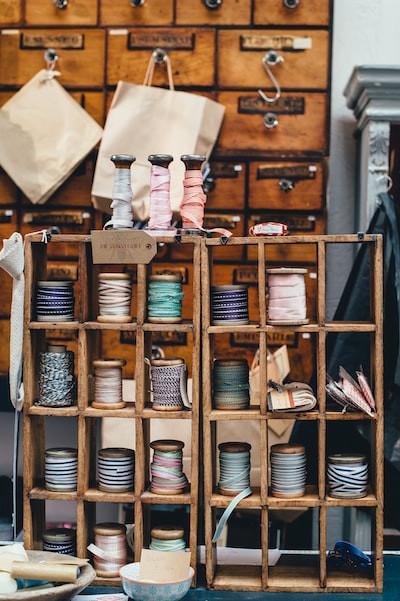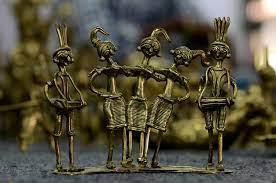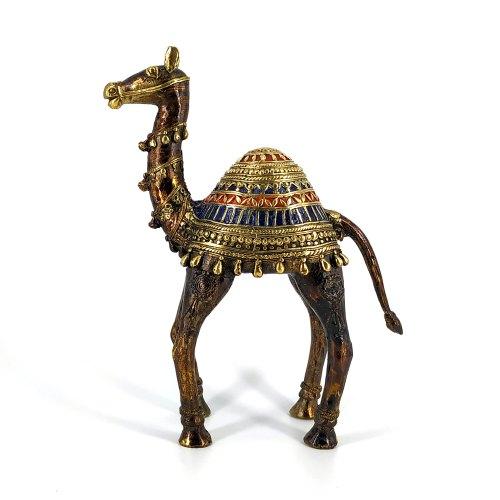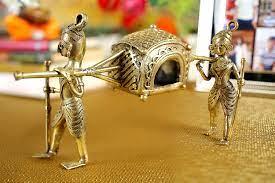Explore the World's Best Ideas
Join today and uncover 100+ curated journeys from 50+ topics. Unlock access to our mobile app with extensive features.
The ancient craft of "DHOKRA"
Dhokra (also spelt Dokra) is non–ferrous metal casting using the lost-wax casting technique. This sort of metal casting has been used in India for over 4,000 years and is still used. One of the earliest known lost wax artefacts is the dancing girl of Mohenjo-daro. The product of dhokra artisans are in great demand in domestic and foreign markets because of primitive simplicity, enchanting folk motifs and forceful form. Dhokra horses, elephants, peacocks, owls, religious images, measuring bowls, and lamp caskets etc., are highly appreciated
5
43 reads
The Process
There are two main processes of lost wax casting: solid casting and hollow casting. While the former is predominant in the south of India the latter is more common in Central and Eastern India. Solid casting does not use a clay core but instead a solid piece of wax to create the mould; hollow casting is the more traditional method and uses the clay core.
4
9 reads
Process explained
The first task in the lost wax hollow casting process consists of developing a clay core which is roughly shaped as the final cast image. Next, the clay core is covered by a layer of wax composed of pure beeswax, resin from the tree Damara orientalis, and nut oil. The wax is then shaped and carved in all its finer details of design and decorations. It is then covered with layers of clay, which takes the negative form of the wax on the inside, thus becoming a mould for the metal that will be poured inside it. Drain ducts are left for the wax, which melts away when the clay is cooked.
5
9 reads
The wax is then replaced by the molten metal, often using brass scrap as basic raw material. The liquid metal poured in hardens between the core and the inner surface of the mould. The metal fills the mould and takes the same shape as the wax. The outer layer of clay is then chipped off and the metal icon is polished and finished as desired.
4
13 reads
IDEAS CURATED BY
Navya Verma's ideas are part of this journey:
Learn more about history with this collection
Different Easter traditions around the world
The significance of Easter eggs and bunnies in modern culture
The importance of the holiday in the Christian faith
Related collections
Similar ideas
Read & Learn
20x Faster
without
deepstash
with
deepstash
with
deepstash
Personalized microlearning
—
100+ Learning Journeys
—
Access to 200,000+ ideas
—
Access to the mobile app
—
Unlimited idea saving
—
—
Unlimited history
—
—
Unlimited listening to ideas
—
—
Downloading & offline access
—
—
Supercharge your mind with one idea per day
Enter your email and spend 1 minute every day to learn something new.
I agree to receive email updates



